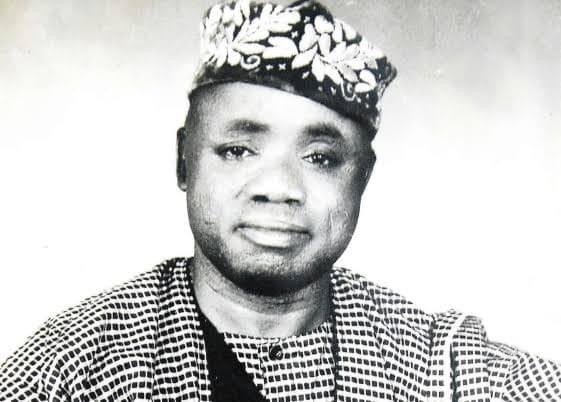Daniel Olorunfemi Fagunwa, popularly known as D. O. Fagunwa, was a Nigerian author and teacher born in 1903 or circa 1910 in Okeigbo, near Ondo, Yorubaland, Southern Nigeria.
He was a prominent figure in Yoruba literature, known for his fantastic novels that drew heavily on folktales and idioms, including many supernatural elements.
Fagunwa’s literary career began in 1938 when he participated in a literary contest organized by the Nigerian education ministry.
He submitted his first novel, Ògbójú Ọdẹ nínú Igbó Irúnmọlẹ̀, which was widely considered the first full-length novel published in the Yoruba language.
Nobel Laureate prize winner, Professor Wole Soyinka translated the book into English in 1968 as The Forest of a Thousand Demons, first published by Thomas Nelson and later by Random House in 1982.
Fagunwa’s later works include Igbó Olódùmarè (1949), Ìrèké Oníbùdó (1949), Ìrìnkèrindó nínú Igbó Elégbèje (1954), and Àdììtú Olódùmarè (1961).
His novels often feature Yoruba hunters interacting with kings, sages, and gods in their quests, exploring the divide between Christian beliefs and traditional Yoruba religions.
Fagunwa was awarded the Margaret Wrong Prize in 1955 and was made a Member of the Order of the British Empire in 1959.
His works have been widely translated and continue to be influential in African literature.
Fagunwa was a teacher for nearly twenty years and later served as an administrator and consultant with the Publications Branch of the Ministry of Education in Western Nigeria.
He was also the representative of Heinemann Educational Books in Nigeria from 1959 until his death in 1963.
Fagunwa died on December 9, 1963, near Bida, Nigeria, after falling into the Kaduna River while waiting to cross by ferry.
Fagunwa remains the most widely read Yoruba-language author and a major influence on contemporary writers such as Amos Tutuola. His works continue to be celebrated for their vivid storytelling, rich Yoruba culture, and exploration of themes relevant to African society.














